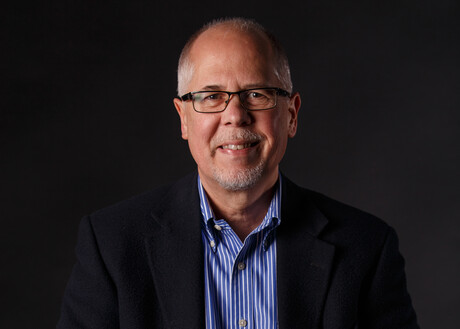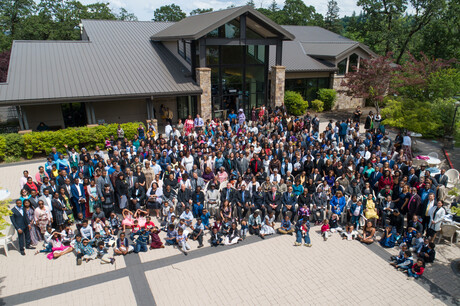I am challenged by Elder Patzer’s March editorial which suggests that we have scholars to wrestle with the hard biblical issues. The implication is “church leaders and members” are somehow inept at thinking critically about challenging theological concepts. Conversely, God does not relegate the tough issues to only the experts but in fact gives invitation for all to come and reason together (Isa. 1:18). Besides, the Jewish scholars had things in quite a mess by the time Christ arrived on the scene! Truth can always be found by anyone truly searching.
I am also troubled by his idea that our understanding of science should be “informed by theology” and not the other way around. He says unless we do this, our entire belief system might be jeopardized. While all scripture is inspired, its profitability is primarily toward righteousness (2 Tim. 3:16), not science. The inspired word was given to a variety of people with differing levels of experience. To suppose that only biblical science can adequately inform all aspects of contemporary scientific advances is naive. I agree with Galileo who once said, the Bible tells how to go to heaven, not how the heavens go.
Fred McGhee—Battle Ground, Wash.
In his editorial, Elder Patzer stated, concerning the idea that the creation of the sun and the moon were made after the creation of light, that, even “if it doesn’t make sense,” that we need to have faith. According to R. E. Hoen in The Creator in His Workshop p. 43, “Several scriptures which refer to this same creative act of causing the heavenly bodies to appear through the firmament employ the words prepare, appoint, ordain, and ordinance rather than the term create.” He means that the sun was already created before the fourth day but became visible on the fourth day. I think that makes sense. True science and revelation are always in harmony with each other but we need to study more carefully the Bible.
Jerry Prouty—Newman Lake, Wash.
Thanks for your editorial in the March GLEANER. I agree we should simply believe the Bible. We need to let our theology inform our science. God’s word must be first!
Gladys Grant—Kennewick, Wash.
It is obvious from the written and oral communication I’ve received from the March editorial that I touched a responsive nerve. Thank you for sharing your comments and rather than attempt to address the variety of points made by thoughtful readers, let me expand very briefly on my comments as a further statement of my beliefs.
It was the early Christian father Origin (AD 185–254) who was given credit as one of the first to advance the theory of the creation “days” in an allegorical or non-literal manner. A hundred years later the Latin father Augustine supported this concept based on a philosophic not scientific basis. This Alexandrian allegorical method of interpretation influences Catholic theology as well as other schools of thought still to this day.
Conversely in the sixteenth century the reformers again championed the authority of scripture in the literal sense. Martin Luther argued for the literal interpretation of the creation story when he said, “We assert that Moses spoke in the literal sense, not allegorically or figuratively.” It was thanks to these Reformers that the Scriptures regained their primacy and authority.
But this was not the end of the debate. For every biblical truth there is a counterfeit and so in the mid-1800s two widely-read authors came on the scene that still impact scientific and theological thought to this day—Charles Darwin with his Origin of the Species and Ellen G. White with her inspired theological insights. She wrote, “The work of creation cannot be explained by science” Ministry of Healing, page 414. And regarding apparent discrepancies between science and theology or the idea that some advocate that we have to put our science and religion in separate boxes, she comments, “True science and Bible religion are in perfect harmony” Seventh-day Adventist Bible Commentary, volume 4, page 1167. In further addressing this issue, it is significant that in speaking of the apostasy in Elijah’s day, which she paralleled with our own times she wrote, “The apostasy prevailing today is similar to that which in the prophet’s day overspread Israel . . . of the teachings of science above the truths of revelation, multitudes today are following after Baal” Prophets and Kings, page 170.
I’ve often thought that there may be some significance to the fact that when Christ, who was the only eyewitness of creation, walked the earth He did not find it necessary to make any correction to the understanding of the Genesis account. Additionally Paul, His contemporary, wrote, “All Scripture is given by inspiration” and if he were alive today I believe he might add, “and I still mean all.”
So in my mind it seems to come down to a choice of where to put my faith. When science, archeology, or any other discipline that tends to change from generation to generation seems to differ from the view of Scripture, I am safe in adhering to Scripture as the higher level of authority . . . along with Moses, Jesus, Martin Luther and the reformers, Ellen White, and a host of credible scientists and scholars.
Jere D. Patzer, North Pacific Union Conference president






